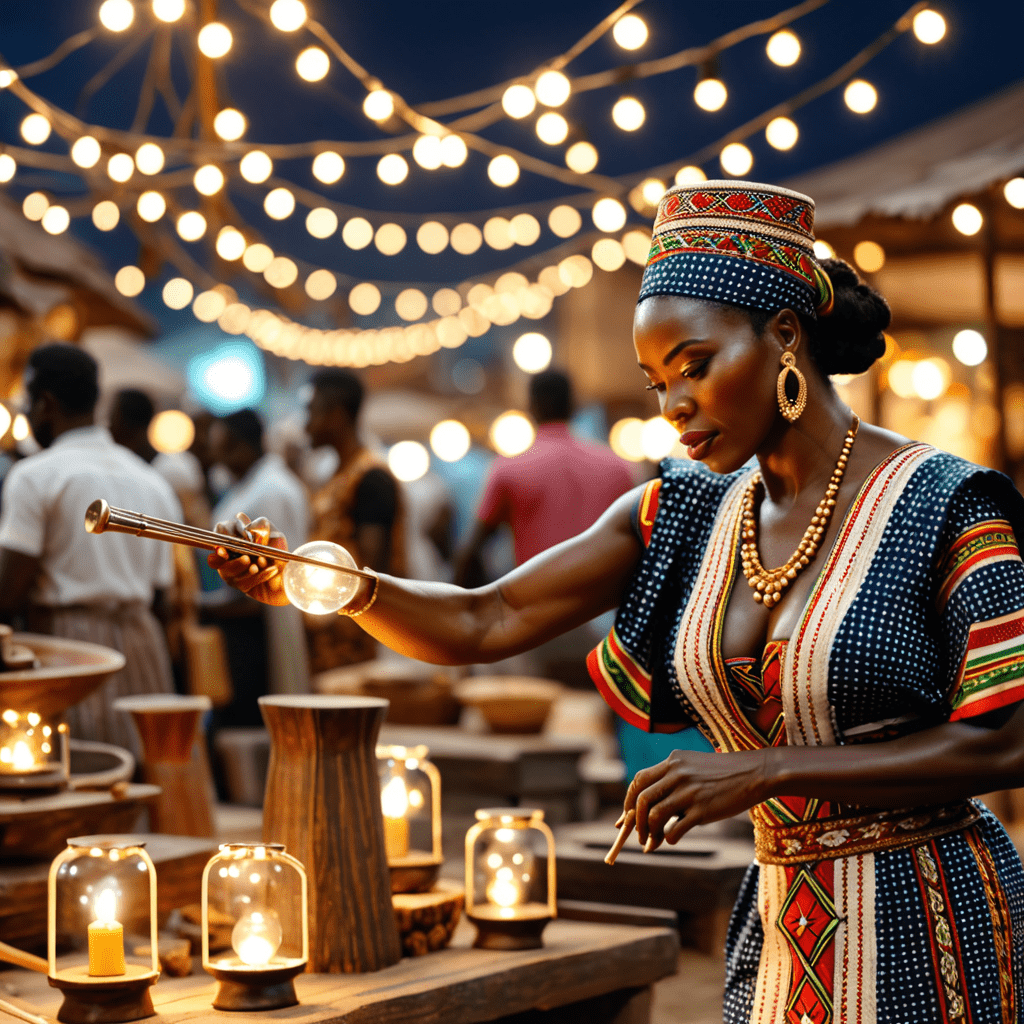
Angola’s Renowned Artisans and Craftsmanship
Angola is a country in Southern Africa known for its rich cultural heritage and vibrant arts scene. One of the standout aspects of Angola’s cultural landscape is the remarkable craftsmanship displayed by its artisans. Let’s delve into the world of Angola’s renowned artisans and their exquisite craftmanship.
The History of Angolan Artistry
Artisanal traditions in Angola have deep roots that trace back through generations. From traditional pottery and weaving to intricate beadwork and wood carving, Angolan artisans have honed their skills over centuries, blending indigenous techniques with influences from Portuguese colonization and other cultural interactions.
Unique Artisanal Skills and Techniques
Angola boasts a diverse range of artisanal skills and techniques. Skilled potters create stunning ceramics using traditional methods, while weavers craft intricate textiles and baskets from locally-sourced materials. Woodcarvers sculpt beautiful figurines and ceremonial masks, each piece telling a story of Angolan culture and history.
The Significance of Artisanal Crafts
Artisanal crafts hold significant cultural and economic value in Angola. These handmade products not only showcase the artistic talents of Angolan artisans but also serve as vital sources of income for many communities. By preserving and promoting traditional crafts, artisans play a crucial role in preserving Angolan heritage.
Artisan Communities Across Angola
From the bustling markets of Luanda to the remote villages in the countryside, artisan communities can be found throughout Angola. Each region of the country offers its own unique style of craftsmanship, reflecting the diverse cultural influences and natural resources present in different areas.
Supporting Angolan Artisans
Supporting Angolan artisans not only helps preserve traditional crafts but also contributes to sustainable economic development. By purchasing handmade products directly from artisans or through fair trade organizations, individuals can make a positive impact on the lives of these talented craftspeople and their communities.
Exploring Angolan Craft Markets
Visiting craft markets in Angola is a fascinating way to immerse yourself in the country’s artisanal heritage. From intricately woven baskets to colorful beadwork and striking pottery, these markets offer a treasure trove of handmade goods that make for unique souvenirs and gifts.
Embracing Angolan Artisanal Excellence
As Angola continues to celebrate and preserve its rich artisanal traditions, embracing the excellence of Angolan artisans becomes a way to connect with the country’s cultural identity and support local craftsmanship. By valuing and promoting these time-honored skills, we can ensure that Angola’s artisanal legacy thrives for generations to come.
Frequently Asked Questions about Angola’s Renowned Artisans and Craftsmanship
What makes Angolan artisans and craftsmanship unique?
Angolan artisans are known for their exceptional skill and creativity in crafting traditional items like pottery, woodwork, and textiles. The craftsmanship reflects the country’s diverse cultural heritage and rich history.
Where can one find Angolan artisanal products?
Angolan artisanal products can be found in local markets, craft fairs, and specialty shops across the country. Visitors can explore Luanda’s bustling markets or venture into rural areas to discover authentic handmade crafts.
What types of artisanal products are popular in Angola?
Popular artisanal products in Angola include intricately woven baskets, colorful textiles, beautifully carved wooden sculptures, and unique pottery pieces. Each item tells a story and represents Angolan traditions.
How can one support Angolan artisans and craftsmanship?
Supporting Angolan artisans can be done by purchasing their handmade products, spreading awareness about their work, and promoting sustainable practices. By appreciating and investing in their craft, visitors can contribute to preserving Angola’s cultural heritage.


